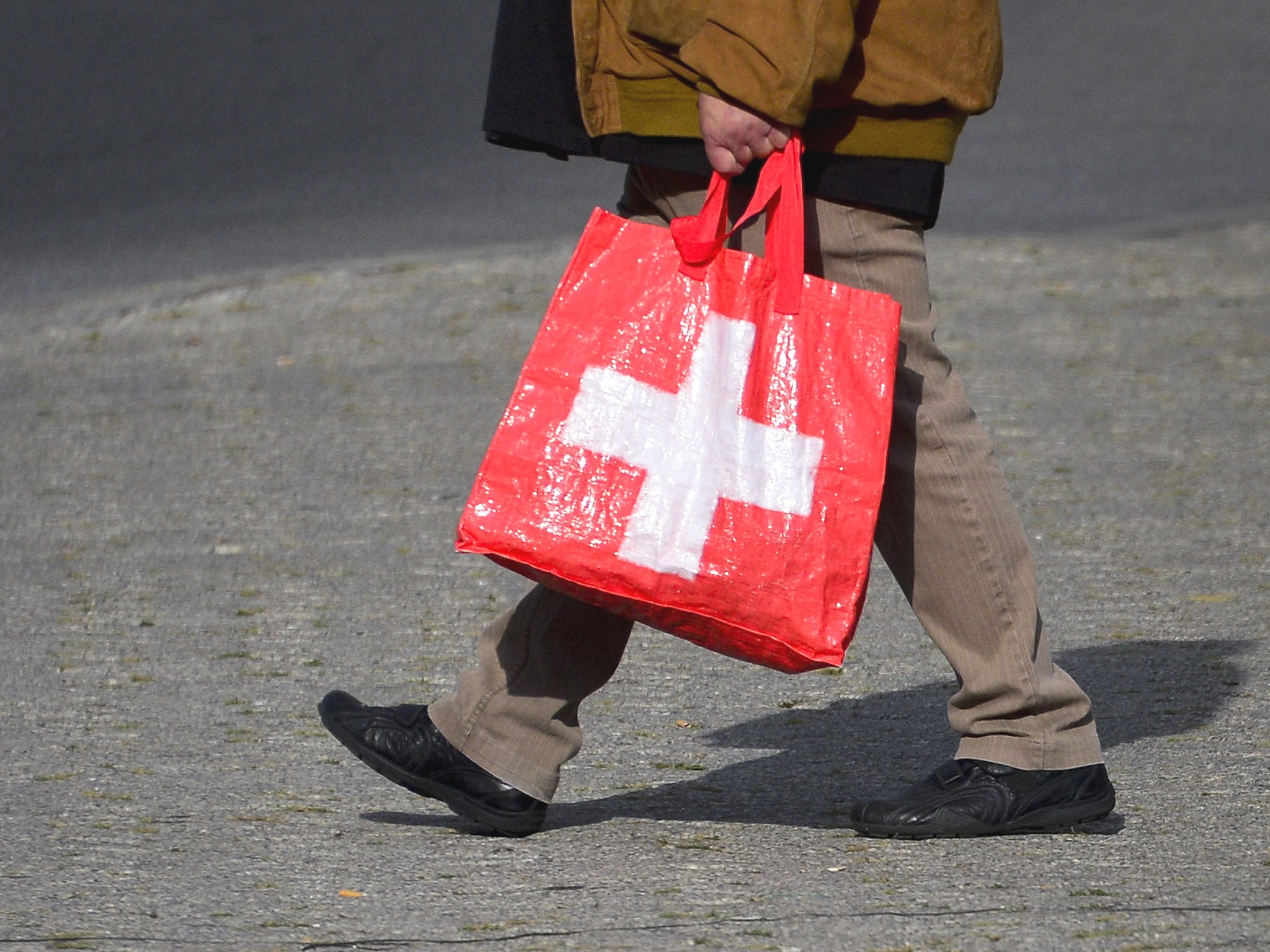£15 per hour for Swiss workers: Referendum on plans to introduce the world’s highest minimum wage has employers worried
Trade unions claim pay levels need to reflect the country’s prices, while the government says it will lead to higher unemployment

Your support helps us to tell the story
From reproductive rights to climate change to Big Tech, The Independent is on the ground when the story is developing. Whether it's investigating the financials of Elon Musk's pro-Trump PAC or producing our latest documentary, 'The A Word', which shines a light on the American women fighting for reproductive rights, we know how important it is to parse out the facts from the messaging.
At such a critical moment in US history, we need reporters on the ground. Your donation allows us to keep sending journalists to speak to both sides of the story.
The Independent is trusted by Americans across the entire political spectrum. And unlike many other quality news outlets, we choose not to lock Americans out of our reporting and analysis with paywalls. We believe quality journalism should be available to everyone, paid for by those who can afford it.
Your support makes all the difference.Jasmin Eicher has already axed her only full-time employee to keep her shop afloat, which sells cards, candles and paper in a Zurich suburb. If Switzerland approves what would be the world’s highest minimum wage, she says the only option would be to close the store.
The Swiss will vote in a referendum next month on whether to create a minimum wage of 22 Swiss francs (£15) per hour, or 4,000 francs a month. While about 90 per cent of workers in Switzerland already earn more than that, employers say setting a minimum wage level that high would push up salaries throughout the economy. The potential wage, when adjusted for currency and purchasing power, would be the highest minimum in the world.
“We couldn’t pay it,” said Ms Eicher, at her shop in Schlieren. The employee she let go made 3,500 francs a month. Now she is by herself, working 10 hours a day, six days a week; hopes of hiring cheaper help would be dashed if the proposal was passed. “I understand about people not earning enough, but not everyone is worth 4,000 francs. Here in Switzerland we’re already so well off,” she said.
The chief backers of the proposal are the biggest trade unions, which argue that pay levels need to reflect the country’s prices, which are among the world’s highest. The result is not clear-cut – a poll by researcher gfs.bern said 52 per cent of voters were likely to reject the proposal when the referendum is held on 18 May. A separate survey last month suggested the same percentage would vote yes.
Last year, voters approved the “fat-cat initiative”, which gave shareholders a binding vote on managers’ pay and blocked big severance packages. However, in November voters rejected a measure to limit bosses’ pay to 12 times that of junior employees. Big firms including food group Nestlé and pharmaceuticals company Novartis AG are against the measure.
The multi-party federal government is also opposed to a national minimum wage, saying it will lead to higher unemployment. “A minimum wage won’t stop poverty,” the Economy Minister, Johann Schneider-Ammann, told reporters in February.
According to Boris Zuercher, head of the Employment Directorate at the State Secretariat for Economic Affairs, the uniform wage would get passed on to consumers in higher prices and will result in job losses among the low-paid. Workers earning between 4,000 and 6,000 francs a month, 40 per cent of the full-time workforce, will seek higher pay too, he said.
The Swiss Federation of Trade Unions says a minimum wage would not lead to higher unemployment because it would mostly affect domestically oriented sectors where outsourcing is not possible.
As for Ms Eicher, she says the proposal has one bright side. If it passes and her shop folds, she could imagine working somewhere else with a guaranteed minimum income. “It’ll be great to be an employee,” she added.
© Bloomberg
The cost of living: Britain vs Switzerland
Average rent in the UK About £750 a month, though it varies by location, with rents far in excess of £1,000 found in London.
Average cost of renting in Switzerland The majority of Swiss rent, rather than own, paying anything from £845 to £2,000 a month depending on location and property size.
Average monthly wage across the UK £2,250.
Average wage in Switzerland 40 per cent of the workforce earns between £2,700 and £4,000 a month.
Price of loaf of bread in Britain: about £1.30.
Price of a loaf of bread in Switzerland: about £1.70.
Average cost of two pints (1.14 litres) of milk in Britain: 85p to 90p.
Average cost of a litre of milk in Switzerland: about £1.35.
Average cost of a trip to a UK cinema £6.50 to £7.
Average cost of Swiss cinema ticket £10 to £11.50.
Join our commenting forum
Join thought-provoking conversations, follow other Independent readers and see their replies
Comments